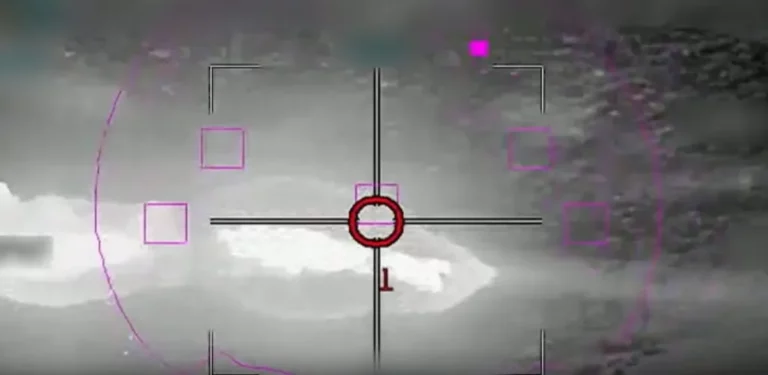Vayishma Moshe es ha’am boche l’mishp’chosav (11:10)
The Gemora in Shabbos (130a) teaches that any mitzvah which was accepted by the Jewish people with joy, such as circumcision, is still performed happily to the present day. Any mitzvah that was accepted with fighting, such as forbidden relationships, is still accompanied by tension, as the issues involved in the negotiation of every wedding cause struggles. Of all of the commandments, why did the Jewish people specifically complain about the prohibition against marrying family members?
Dayan Yisroel Yaakov Fisher suggests that when the Jews heard that they would be unable to marry their close relatives, they feared that they would be unable to enjoy successful marriages. They believed that the ideal candidate for marriage would be a person who was familiar since birth and who would be almost identical in terms of values and stylistic preferences. From the Torah’s prohibition to marry those most similar to us, we may deduce that Hashem’s vision of an ideal marriage differs from our own.
The Mas’as HaMelech derives a similar lesson from Parshas Ki Seitzei, which begins by discussing the Y’fas Toar – woman of beautiful form. The Torah permits a soldier who becomes infatuated with a non-Jewish woman during battle to marry her. This is difficult to understand, as only the most righteous individuals constituted the Jewish army. Rashi writes (Devorim 20:8) that somebody who had committed even the smallest sin was sent back from the war. How could such pious Rabbis be tempted to marry a beautiful non-Jewish woman?
Rashi writes (21:11) that a person who marries a Y’fas Toar will ultimately give birth to a Ben Sorer U’Moreh – wayward son. The Gemora in Sanhedrin (71a) rules that a child may only be punished as a rebellious son if his parents are identical in their voices, appearances, and height. The Mas’as HaMelech explains that even the most righteous soldier will be taken aback upon encountering a woman who looks like him and whose voice is identical to his. All external signs seem to indicate that she is meant for him, and he may be convinced that Hashem’s will is for him to convert her and marry her.
However, from the fact that Rashi teaches that a wayward son will come out of such a union, we may conclude that the ideal marriage isn’t one in which the husband and wife enter already identical to one another. A Torah marriage is one in which the two partners grow together over time to understand and respect one another, allowing them to overcome their differences and create a beautiful, harmonious blend of their unique perspectives and experiences.
V’ruach nasa me’es Hashem vayagez slavim min hayam vayitosh al hamachane k’derech yom koh uk’derech yom koh sevivos hamachane uk’amasayim al p’nei ha’aretz (11:31)
During their 40-year sojourn in the wilderness, the Jewish people were sustained by Manna, which miraculously fell each day from Heaven. All they needed to do was go out each morning to collect it, allowing their physical needs to be met with a minimum of exertion. Moreover, our Sages teach that the Manna tasted like whatever the person eating it desired (Rashi 11:5).
Parshas Behaaloscha contains a tragic incident, in which a group of ungrateful complainers began to protest the Manna that they were forced to eat day after day. They wailed that they missed the succulent meat that they ate in Egypt, and now they had nothing to look forward to except Manna. Hashem responded to their lack of appreciation by giving them an abundance of meat.
Although this entire episode is difficult to comprehend, one detail in particular stands out as particularly curious. The Torah records that the meat was two cubits (3-4 feet) above the ground. Rashi explains that the animals floated in mid-air at this level so that the Jews who went to gather them wouldn’t have to exert themselves to bend over and pick them up from the ground.
However, we know that a mere two verses later, the Torah relates (11:33) that those who gluttonously consumed the meat died with the meat still between their teeth. If Hashem felt that their complaints and demands were inappropriate and planned to use the meat as an instrument of Divine punishment, why did He miraculously suspend the animals in mid-air to prevent unnecessary efforts on the part of such sinners?
The Darkei Mussar derives from here a beautiful lesson in how Hashem runs the world. Rashi is teaching us that Hashem’s system of reward and punishment is meted out very precisely. Even a person upon whom suffering is decreed will only experience the exact amount of pain which is coming to him and not the slightest bit more.
This concept is illustrated in the following story. A man once arrived at the airport and checked in for his flight. After he was already in his seat and waiting for takeoff, the flight attendant approached to explain that he hadn’t paid the balance of his ticket and must deplane. The man was livid, as he knew that he had paid and he needed to be on this flight. The flight crew was insistent that they wouldn’t take off with him on board, and they suggested that he quickly sort it out at the gate.
Highly perturbed but left with no choice, the passenger went to argue with the manager. Unfortunately, by the time the manager located the source of the error, the plane had departed. The man was beside himself with anger … until he heard on the news that the plane had crashed without any survivors. He was so overcome with emotion that it took him several minutes to realize that although his life was spared, his suitcase had been left on the plane and was destroyed. Still, any pain he felt over his lost personal items paled in comparison to his tremendous joy over his life being saved. Even though Hashem had decreed that he must lose his suitcase, He took it away in a calculated and precise manner which minimized the pain.
Although nobody enjoys suffering, the knowledge that it is precisely meted out by a loving and compassionate G-d Who won’t put him through the smallest amount of unnecessary pain can make it significantly more bearable.
Parsha Points to Ponder (and sources which discuss them):
1) Rashi writes (9:7) that the section discussing the laws of Pesach Sheini would have been taught by Moshe together with the rest of the Torah, but the impure men merited that the portion was introduced and written as a result of their actions. Rashi similarly writes (27:5) that the daughters of Tzelafchad merited bringing about the teaching of the laws of inheritance through their actions. Why aren’t the names of the impure men specified, as are the names of the daughters of Tzelafchad, in order to give them proper credit for introducing this section? (Darash Moshe)
2) The Torah testifies (12:3) that Moshe was more humble than any person on the face of the earth. Does this mean that it is physically impossible for another person to be more humble than Moshe, or is the Torah merely stating the facts and teaching that in reality nobody was ever more humble than Moshe, even though it is theoretically possible to do so? (Ayeles HaShachar)
3) The Mishnah in Avos (5:7) lists seven characteristics of a wise person, one of which is that he doesn’t interrupt another person who is still speaking. From where in Parshas Behaaloscha is this lesson derived? (Rav Ovadiah Bartenura Avos 5:7)
4) The Rambam writes (Hilchos Tumas Tzara’as 16:10) that Miriam didn’t intend to disparage Moshe with her comments to Aharon. Rather, she erred in equating the level of Moshe’s prophecy to that of other prophets such as herself and Aharon. The Rambam lists 13 fundamental principles of Jewish belief and writes that a person who denies even one of them is considered a heretic. One of them is that the level of Moshe’s prophecy is unparalleled among all other prophets. Does this mean, G-d forbid, that Miriam was a heretic? (Kovetz Ma’amorim)
5) The Torah records (12:13) that Moshe prayed on behalf of his ill sister Miriam. Why do we pray for the healing of a sick person using his mother’s name? (Zohar HaKadosh Parshas Lech Lecha 81a, Maharshal Shabbos 66b, Chasam Sofer Parshas Bereishis, Ben Yehoyada Berachos 55b, Shu”t Torah Lishmah 399, Ma’adanei Asher 5768)
© 2010 by Oizer Alport. To subscribe, send comments, or sponsor an issue, email[email protected]
Click HERE to read the archives.










